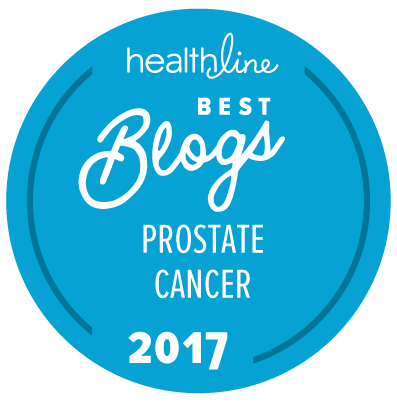(with apologies for hitting the wrong button and posting a partial entry earlier today)
In the endless controversy over screening, one issue that is often overlooked is the price men pay for being discovered and treated. I know, I know – no dead man gets erections. But of course few of the ~30-50% (at least…) of men over 70 who have prostate cancer and don’t know it have incontinence, bowel problems, or treatment induced decline in their potency either. And of course, different men and their wives place differing values on all of these functional issues. Wives in particular almost always tell me in counseling sessions that what they want most is survival – at any cost. Guys aren’t so certain.
In the PLCO trial, which showed a minimal (if any) effect overall for improving men’s survival (see my previous blog on this…I am neither “for it” or “against it” but favor being sure men are better informed), the effects of treatment have been newly analyzed. 529 patients discovered by screening who received treatment were compared to 514 non-cancer controls who were matched for race, location, study arm (control vs screened), and year of enrollment. In this paper, telephone interviews were conducted to determine side effects of treatment. The conclusion from the abstract is:
“Weighted linear regression analyses revealed poorer sexual and urinary function among PCa survivors compared with noncancer controls (P .31). Compared with radical prostatectomy patients (n = 201), radiation-therapy patients (n = 110) reported better sexual (P < .05) and urinary (P < .001) functioning but poorer bowel outcomes (P < .05). Survivors who received treatment combinations including androgen deprivation (n = 207) reported significantly poorer hormone-related symptoms compared with radical prostatectomy patients (P < .05).”
Overall, NINETY FIVE percent of treated men reported decline in sexual function.
In another newly released study that hit the news today, there is further bad news for use of anti-androgens in terms of sexual function. While it has long been known that there are potency problems in using propecia, the drug approved for treating male pattern baldness, this study suggests that the effects may persist in some men for prolonged periods after discontinuing the drug. Remember, that propecia is the ONE mg dose of finasteride, while proscar is the FIVE mg dose, presumably having more side effects and perhaps lasting still longer?
However, from a survival point of view, we must remember that many of the studies that have added anti-androgen therapy to treatment have shown favorable effects. And one of the best studies in men with locally advanced prostate cancer found that longer treatment was better than short term treatment in terms of improving survival.
My conclusion is that if it were not for the side effects, all men would probably benefit from anti-androgen treatment after their desire for having children is over – prostate cancer or not. There would be fewer wars, less nasty political ads on television, and in many cases, happier homes. Ah, but would we have hedge funds, spectacular olympians, 80 yard touchdown passes, and really loud motorcycles? I doubt it. For the prostate cancer patient, the choices come down to really understanding the risks and benefits of ANY of the treatments we can offer, and for those considering screening, the “no free ride” is an important part of decision making.




Sorry, but have I missed something.?.”The conclusion from the abstract is………” ??? Thanks for your attention.
“Weighted linear regression analyses revealed poorer sexual and urinary function among PCa survivors compared with noncancer controls (P .31). Compared with radical prostatectomy patients (n = 201), radiation-therapy patients (n = 110) reported better sexual (P < .05) and urinary (P < .001) functioning but poorer bowel outcomes (P < .05). Survivors who received treatment combinations including androgen deprivation (n = 207) reported significantly poorer hormone-related symptoms compared with radical prostatectomy patients (P < .05).”
Your Blog is informative and enlighteing and your quirks and sense of humor make it entertaining to read regardless of the conclusions or morbid outcomes for quality of life or survival rates for the future.
Thanks, Ashton
Pingback: More on the “no free ride” reality | prost8blog
Pingback: Prostatectomy compared to Active/Watchful Surveillance | prost8blog
Pingback: No surgery or radiation. Just make my PSA go down! | prost8blog